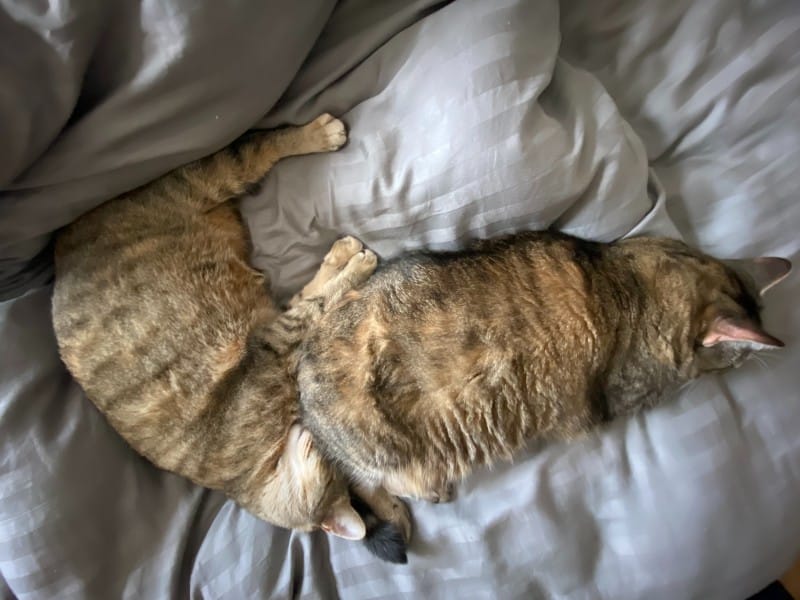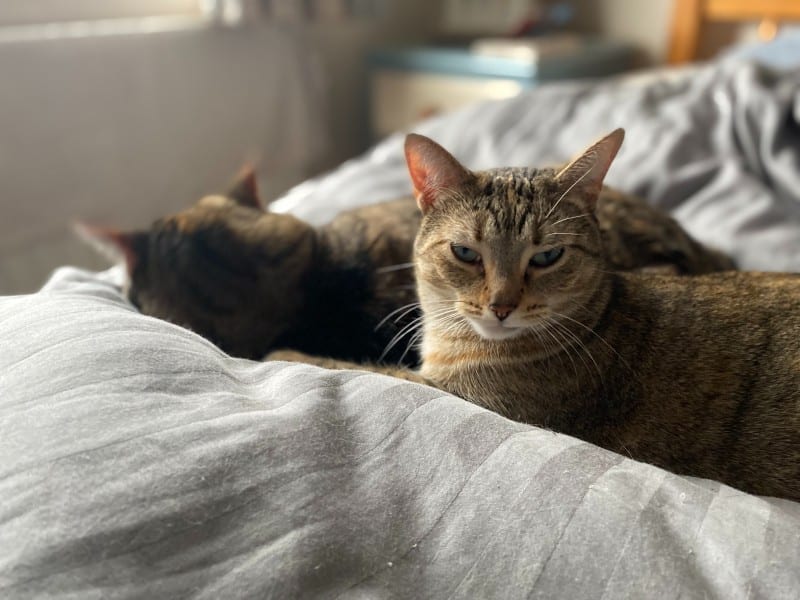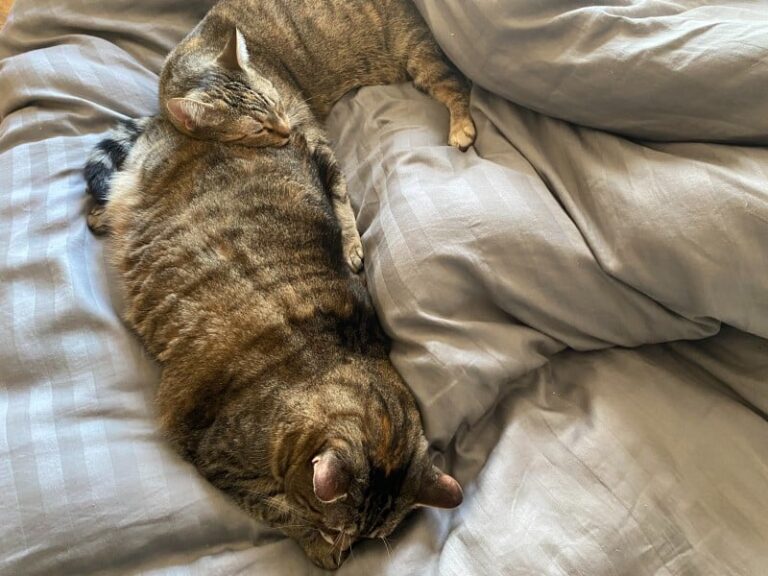Hello, I’m Dr. Lauren! Read my introduction to be taught extra about me and my two adventurous cats, Pancake and Tiller.
The stereotypical picture of a cat as aloof and uncaring is one which has been perpetuated all through media, anecdotes, and writing, resulting in a long-standing perception that canines are man’s greatest good friend, and cats merely don’t care.
Nothing could possibly be farther from the reality. And the disservice this has achieved cats, is immense. Why, you ask?
Separation Anxiousness in Cats: Is It Actually a “Factor”?
Properly, feline drugs has typically taken a step again from canine drugs. For a very long time, in actual fact, a lot of the veterinary occupation’s lifetime, cats have been handled as canines. However, we now know that is merely not true. Cats endure their very own distinctive ailments: hyperthyroidism, urinary blockages, feline hyperesthesia syndrome, and feline coronavirus, to call a couple of. To not say that cats don’t additionally endure from a few of the similar ailments as canines (or possibly I ought to say canines endure from the identical ailments as cats!).
Partly, this inappropriate notion of aloofness is probably going why separation nervousness in cats has been poorly recognized till latest years. And nonetheless isn’t effectively spoken about. Comparably, in canines, and even people, it’s a reasonably well-known entity.
So, what’s separation nervousness? To grasp that, first you’ll want to perceive how attachment occurs in the first place. Attachment begins when the offspring stays near its mom throughout formative years. Partly, this aids survival, although different capabilities are additionally potential, corresponding to bonding, and socialization.
As veterinary college students, we discovered about separation nervousness in canines, and the causes, the behavioural modification to right it, and the medical therapies out there. When it got here to cats, as with most behaviors, we merely didn’t focus on it. Canines had been man’s greatest mates… cats had been simply… cats.
In observe, we nonetheless don’t typically make the analysis of feline separation nervousness. I typically joke about how Pancake sleeps 26 hours a day, however in fact, how do cats really feel when house owners depart? What about extraordinarily bonded cats? Cats, greater than canines, usually tend to be raised as orphans, generally known as bottle infants, that means that they generally type intense bonds with their early carers, in alternative of their mom.

Separation Anxiousness In Idea vs Observe
I’ve definitely labored with many sufferers who’re fast to be described as upset when their proprietor leaves for a visit, and behave in a different way upon return. My very own cats are very like this—hiding after they see the journey baggage come out, and never sleeping of their regular spots. Simply as I’m heading out the door, Pancake is infamous for doing a “you’ll be able to’t contact me” and sitting just below the kitchen desk, simply out of attain. Whereas Tiller retreats to below the mattress. On a traditional day, they’d merely be asleep on the couch, and the mattress, respectively. So, definitely, they exhibit some delicate types of nervousness, although not sufficient to be classed as pathological.
New know-how has additionally helped to make the habits of cats extra obvious, as we now have cameras for in-home use, to trace what cats are doing, when we’re not round. Some even dispense treats.
What Behaviors Are Acknowledged For Cats With Separation Anxiousness?
Minimal analysis has been achieved on the subject, however research have checked out owner-based questionnaires, to outline the problem. One study of 136 cats reported behaviors may be fairly diverse, together with issues corresponding to the next:
- Inappropriate urination and defecation
- Extreme vocalization
- Destructiveness
- Psychogenic grooming
Another attention-grabbing findings additionally got here from this explicit examine: feminine cats had been extra probably than males to defecate outdoors the field and to partake in overgrooming, whereas males had been extra prone to carry out harmful behaviors. Inappropriate urination 75% of the time was achieved on the proprietor’s mattress.
Subsequently, separation nervousness solely happens, by definition, when extended, inappropriate bodily responses happen to the bodily departure of the cat’s proprietor. In case your cat sits on the window and cries while you depart for a minute or two, then goes again to mattress, it’s not prone to be thought-about separation nervousness.

If You Suspect Separation Anxiousness In Your Cat, What Are Your Choices?
The very first thing to attempt to do is to get a video or movies of the habits. This may also help your vet affirm the suspicions.
- Home cameras may also help to doc this.
- Concentrate on different family adjustments as effectively, and word these for dialogue together with your vet
- Schedule an appointment together with your vet; know that for some behavioral points, additional referral to a feline behaviorist could also be suggested. When reserving any behavioral appointment, ask if there’s any extra paperwork to fill out, as many vets may have questionnaires to fill out forward of time. And do point out the precise habits that you’re involved about, as typically extra appointment time is required for behavioral points.
- Know that bloodwork and different diagnostics could also be achieved to rule out different considerations. For instance, the hyperactivity, and typically overgrooming, that can occur with hyperthyroidism can typically mimic some parts of different points. Testing may also help to rule this out.
- Know that behavioral points may be tough to deal with, and customarily, the longer it has been occurring, the tougher it may be to deal with. Typically, points can’t be totally resolved, although different instances, they will.
- Be life like about your expectations: what do you wish to occur to the habits? Are you prepared and in a position to medicate your cat day by day? Twice day by day? Comply with up with routine bloodwork, if wanted? Understanding this may also help your vet or behaviorist to search out the most effective choices for you and your cat.
- Have you ever tried something already for the problem, corresponding to pheromone diffusers?
Ultimately, cats usually are not small canines—however that doesn’t imply they don’t have comparable points that crop up, both. As an proprietor, you might be greatest in a position to acknowledge these points, and advocate on your cat!

